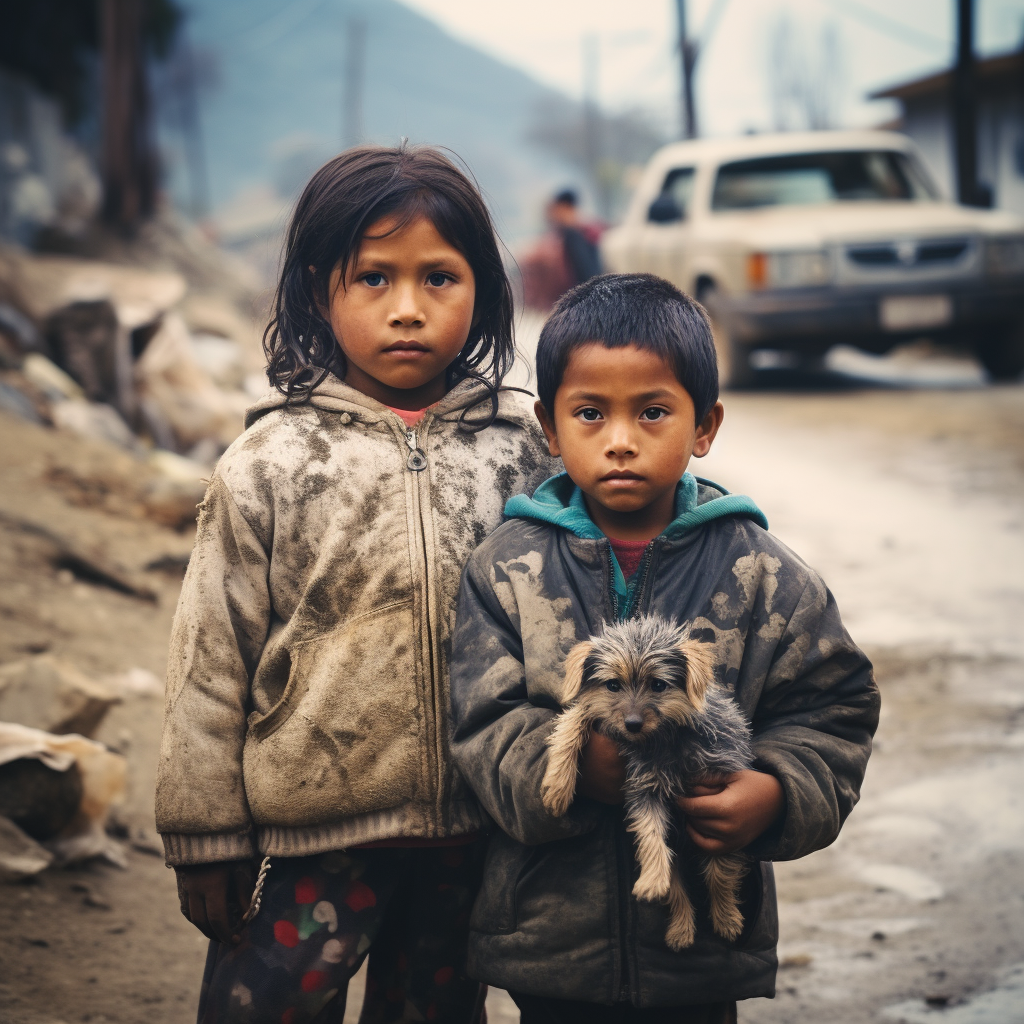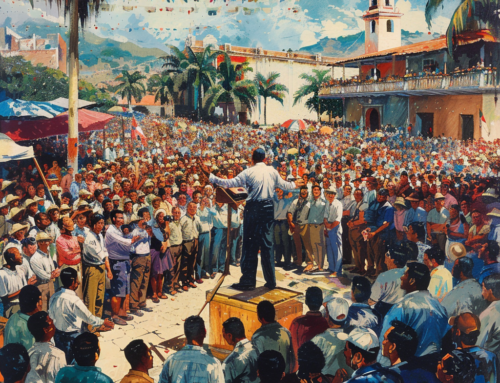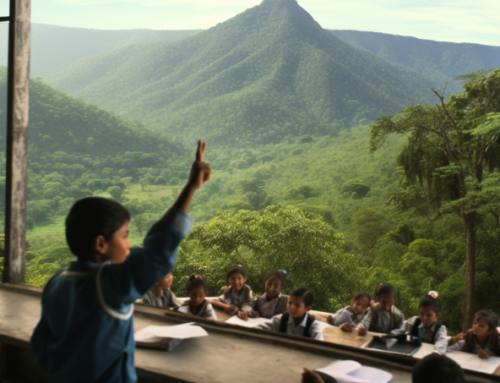Poverty, an affliction that hinders the growth and development of nations, finds a particularly troubling manifestation in the Central American country of Honduras.
While it boasts stunning landscapes and a rich cultural heritage, Honduras grapples with deeply entrenched poverty that affects a significant portion of its population. To truly comprehend the dynamics of poverty in Honduras, one must explore the multifaceted nature of this issue, delving into factors like limited access to education, healthcare, and job opportunities.
Moreover, a historical, economic, and social examination is essential to grasp the intricate web that has woven the current state of poverty in Honduras.
I’m Mike Savage from New Canaan, CT and my wife, Sandra, who was born in Honduras knows the country’s poverty issue first hand. That’s why we’ve set up the Savage-Rivera Foundation to help send necessary school supplies, clothes, toys and more items to the families in Honduras who need it most.
Educational Inequities: A Stifling Cycle
A fundamental pillar in breaking the chains of poverty is education, yet Honduras faces challenges in providing widespread access to quality education. A shortage of schools and qualified teachers plagues many regions, particularly rural areas, where poverty is most concentrated.
Children growing up in such environments often confront a lack of educational infrastructure and resources, hindering their ability to break free from the cycle of poverty. With limited education, these individuals are more likely to be trapped in low-skilled jobs, perpetuating the cycle across generations.
Healthcare Disparities: A Struggle for Well-being
The correlation between poverty and limited access to healthcare is well-documented, and Honduras is no exception. A significant portion of the population lacks access to adequate healthcare facilities and services, particularly in remote and impoverished regions. This deficit not only diminishes the quality of life but also restricts economic growth.
Ailing individuals are less productive, less likely to engage in the workforce, and more prone to slipping further into poverty due to mounting medical expenses. The absence of a comprehensive healthcare system perpetuates the cycle of poverty by robbing individuals of their health and potential.
Narrowed Horizons: The Lack of Job Opportunities
Job opportunities are the gateway to economic empowerment, but Honduras faces a scarcity of formal employment prospects, especially for those lacking higher education or specialized skills.
The majority of job opportunities available to the impoverished are in the informal sector, characterized by low pay, lack of job security, and absence of social benefits. This lack of formal employment options perpetuates financial instability and hinders individuals from escaping poverty.
A comprehensive strategy to create decent work opportunities, along with skill development and vocational training, is vital to uplift the population from poverty’s grasp.
A Historical, Economic, and Social Nexus
Understanding the roots of poverty in Honduras requires a broader perspective that takes into account historical, economic, and social factors. A history marked by political instability, social inequality, and violence has laid the foundation for the existing challenges.
Economic policies that favor a small elite have led to the concentration of wealth in the hands of a few, while leaving the majority grappling with poverty.
Social factors, including gender disparities and ethnic inequalities, further exacerbate the situation. Women, particularly in rural areas, face a double burden of both poverty and gender-based discrimination. Indigenous and Afro-Honduran communities confront systemic marginalization, which perpetuates their vulnerability to poverty.
The Path Forward: Breaking the Chains
Addressing the dynamics of poverty in Honduras necessitates a multi-pronged approach that involves policymakers, civil society, international organizations, and the private sector. Investment in education, healthcare, and job creation must be prioritized to build a foundation for sustainable development.
Access to quality education can break the cycle of poverty, equipping individuals with skills that expand their employment options and income potential. Moreover, improving healthcare infrastructure and services ensures a healthier, more productive population that can contribute to the country’s progress.
Economic reforms that promote inclusive growth, equitable wealth distribution, and support for small-scale enterprises can generate job opportunities and diminish the glaring wealth gap. This, coupled with targeted efforts to empower marginalized groups, can uplift the entire nation.
In conclusion, understanding the dynamics of poverty in Honduras demands a comprehensive analysis of the interplay between limited access to education, healthcare, and job opportunities.
Historical, economic, and social factors have woven a complex web that ensnares a substantial portion of the population in the cycle of poverty. However, through concerted efforts to improve education, healthcare, economic opportunities, and address systemic inequalities, Honduras can pave the way toward a brighter and more equitable future.
ABOUT MIKE SAVAGE OF NEW CANAAN, CT
Michael Savage from New Canaan is the CEO and sole shareholder of 1-800 Accountant that helps businesses with their accounting services and needs through cutting-edge technology and customer support. Mike Savage also has created a foundation with his wife Sandra to provide goods and relief for impoverished children and families in Honduras.
In his spare time, Savage enjoys creating unique koi ponds, collecting Michael Jordan sneakers, vintage Lego sets, and admiring muscle cars and unique pop art. He and his wife also spearhead the Savage-Rivera foundation to help impoverished families in Honduras.




